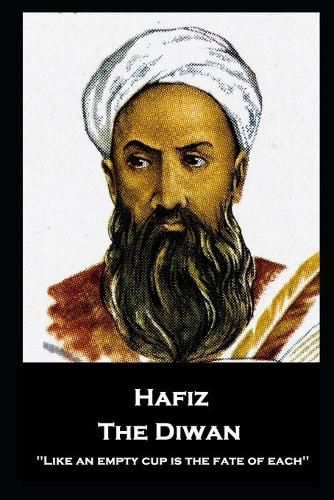Readings Newsletter
Become a Readings Member to make your shopping experience even easier.
Sign in or sign up for free!
You’re not far away from qualifying for FREE standard shipping within Australia
You’ve qualified for FREE standard shipping within Australia
The cart is loading…






Khwaja Shams-ud-Din Muhammad Hafez-e Shirazi is commonly known to us as Hafiz, the Persian poet who was born in Shiraz, Iran in either 1315 or 1317. The facts of much of his early life are unknown to us but it is said that, at an early age, he memorised many passages of the Quran and was therefore given the title of Hafiz, which means ‘the memoriser or the safe keeper.’ Hafiz mainly wrote lyric poetry or ghazals - an ideal form for expressing the ecstasy of the divine and the intoxicating mystical union with God. He was also outspoken on society’s hypocrisy but was supported by patronage during his lifetime from the court of Abu Ishak and succeeding regimes until, towards the end of his life, when he resided at the Court of Timur, more usually known to us as Tamerlane, the conqueror who founded the Timurid Empire in modern day Iran and Central Asia.
Certainly that support enabled Hafiz to devote himself to his writings. Surprisingly there is no definitive version of his collected works (or Divan); some editions run to a mere 573 poems others to just shy of a thousand. However, their beauty and wordplay illuminates why Hafiz was admired so much throughout the Islamic world even during his own lifetime. He remains one of the most celebrated of the Persian poets and his influence through poems, proverbs and sayings can be felt to this day. On various holidays, including 12th October in Iran, Hafiz Day is celebrated: Families will open his Divan at random and read aloud that poem, using it as a guide to what may happen next in their lives.
Hafiz died in 1390. His mausoleum, Hafezieh, is located in the Musalla Gardens in Shiraz.
$9.00 standard shipping within Australia
FREE standard shipping within Australia for orders over $100.00
Express & International shipping calculated at checkout
Khwaja Shams-ud-Din Muhammad Hafez-e Shirazi is commonly known to us as Hafiz, the Persian poet who was born in Shiraz, Iran in either 1315 or 1317. The facts of much of his early life are unknown to us but it is said that, at an early age, he memorised many passages of the Quran and was therefore given the title of Hafiz, which means ‘the memoriser or the safe keeper.’ Hafiz mainly wrote lyric poetry or ghazals - an ideal form for expressing the ecstasy of the divine and the intoxicating mystical union with God. He was also outspoken on society’s hypocrisy but was supported by patronage during his lifetime from the court of Abu Ishak and succeeding regimes until, towards the end of his life, when he resided at the Court of Timur, more usually known to us as Tamerlane, the conqueror who founded the Timurid Empire in modern day Iran and Central Asia.
Certainly that support enabled Hafiz to devote himself to his writings. Surprisingly there is no definitive version of his collected works (or Divan); some editions run to a mere 573 poems others to just shy of a thousand. However, their beauty and wordplay illuminates why Hafiz was admired so much throughout the Islamic world even during his own lifetime. He remains one of the most celebrated of the Persian poets and his influence through poems, proverbs and sayings can be felt to this day. On various holidays, including 12th October in Iran, Hafiz Day is celebrated: Families will open his Divan at random and read aloud that poem, using it as a guide to what may happen next in their lives.
Hafiz died in 1390. His mausoleum, Hafezieh, is located in the Musalla Gardens in Shiraz.